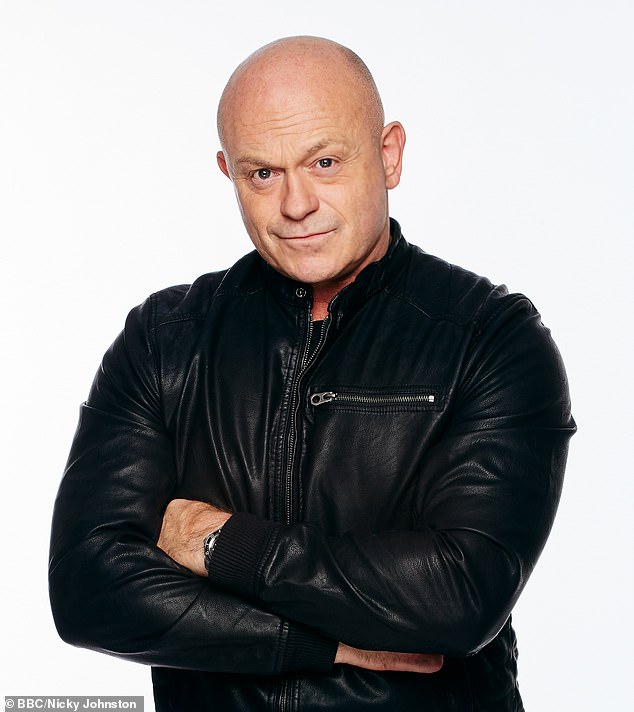Actor and TV presenter Ross Kemp rose to fame in the early 1990s portraying ‘hard man’ Grant – one of the infamous Mitchell brothers in BBC soap opera EastEnders.
After nearly a decade on Albert Square, the now 61-year-old moved into making documentaries, including the Bafta-winning series Ross Kemp On Gangs, which took him into no-go-zones all around the world.
The married father-of-four currently hosts gameshow Bridge Of Lies on BBC One and earlier in the year starred in an episode of Who Do You Think You Are? where he discovered his grandfather survived the sinking of the SS Duchess of York during the Second World War.
What did your parents teach you about money?
The importance of saving it. My parents were both war babies in East Anglia. They didn’t have the things other children had, so money and particularly food waste were important in my household – portion sizes led to scraps between my brother Darren and me.
Understanding the value of things is one of the essential requirements for survival – in Afghanistan, I saw people scooting across the middle of a fire fight looking for shell casings to recycle.
Have you ever struggled to make ends meet?
While at drama school in London [in the mid-1980s] I lived with my best mate in Peckham, and we used to survive on three tins of tuna mixed with supermarket-brand cornflakes, mayonnaise and chilli sauce. That would last us a week.

Hard knocks: Ross Kemp rose to fame in the early 1990s portraying ‘hard man’ Grant Mitchell in BBC soap opera EastEnders
Have you ever been paid silly money?
Compared to a footballer, definitely not. But when I left EastEnders and went to ITV, they called it a golden handcuffs deal. I was paid £1 million a year to make television, a considerable amount. And I paid a considerable amount of tax on it too – 50 per cent.
There wasn’t much I could claim back, as an actor. I couldn’t claim for haircuts, let’s put it that way.
I gave the taxman plenty of money that year… I don’t know what he did with it.
What was the best year of your financial life?
When I signed the deal with ITV [in 1999]. But I’ve had to diversify, like many people, and particularly since Covid.
Last year I made two documentaries and presented a game show. Was that through necessity? Partially. Is this the new way? I think it is. The landscape of television has changed dramatically in the time I’ve been in it.
The most expensive thing you bought for fun?
A convertible. I was a car nut when I was younger, but it devalued significantly. These things are for people on constant incomes.
What was your biggest money mistake?
The car, 100 per cent. It gave me some enjoyment, but it was short-lived.
I’ve bought others that have given me more enjoyment, have lasted longer and are more practical. The car was Italian, that’s all I’ll say – and you won’t find photographs of me with it.
Best money decision you have made?
Buying my first house near Brentwood, Essex.
Within the first year of being in EastEnders, I had saved enough money to put a deposit down.
Ricky Gervais is clever with his money. I only got paid £500 for doing Extras [the comedian’s 2005 BBC sitcom]. Mr Gervais lives down the road from me and he’s got a bigger house on the river, trust me.
![Hard labour: Ricky Gervais only paid Ross £500 for doing Extras [the comedian's 2005 BBC sitcom]](https://i.dailymail.co.uk/1s/2025/09/13/13/102106611-15094649-image-m-13_1757767911465.jpg)
Hard labour: Ricky Gervais only paid Ross £500 for doing Extras [the comedian’s 2005 BBC sitcom]
Will you pass your money down?
No, certainly bloody not. I live in a relatively lovely house and people go, ‘Oh, you live in a nice house,’ as if someone gave it to me. I worked hard for it and paid a lot of tax to get there.
The truly wealthy people I’ve met have often either been helped financially or they’ve done it through illegal means. But how well do they sleep at night? I don’t know.
Also, whether we should pay the levels of tax that we pay in this country for what we get is debatable – is it a disincentive for some to pay so much? Possibly.
Do you have a pension?
Yes. I’ve been paying into it since I was very young.
I’ve worked in pizza parlours, as a plasterer’s mate and labourer in Essex – and as a labourer in Yorkshire, where you get paid significantly less and they work you harder.
I’ve cleaned toilets, and always managed to stay just in the black.
I’ve always worked out and kept relatively fit because of my job. Going back to the gym after a lay-off is always hard – that first step is painful. It’s the same for our finances – if you look in the mirror and say: ‘I’m taking my first steps,’ it’s not as difficult.
As a freelancer I paid what I thought I could afford that year into my pension.
Also, what’s your state pension going to be worth in 30 years? Will it even exist in five?
We’ve got to look after ourselves physically, but also financially.
Do you own any property?
Yes, I still have that first Essex property – I’ve never struggled to rent it out.
Its value has gone up 100 per cent since I’ve owned it. It’s now worth more than £1 million – you can’t invest money with a hedge fund manager better than that.
Although I do believe your home should never be an investment. It’s just circumstances that have led me to keep that home. I also have my main home [in Berkshire].
If you were Chancellor, what would you do?
I’d make it compulsory for children to learn about money and understand it.
When I left drama school I had a small grant, but relied on handouts from my parents – but these were more like tins of baked beans than cash.
Many others I knew lived entirely off mummy and daddy. But I worked in pubs and at a cleaning company.
My dad worked for the Government, so I couldn’t get a bigger grant – and he didn’t want to pay for me to go to drama school. He didn’t want me to be an actor.
I want children to know money is not a dry subject. It’s liquid and interesting.
What is your number one financial priority?
My family, 100 per cent. I’m an older dad – I have two sons aged 14 and ten, and two girls aged seven. I want to ensure they’re set up… I’ve saved for them.
You need parents like mine ramming home the importance of the value of things at an early age.
Recently my mum was talking to my children because they all left food on their plate, which is something we couldn’t do when we were younger.
- Ross is the face of the Pay Your Pension Some Attention campaign, that aims to get people more engaged with their retirement plans – pensionattention.co.uk
Listen to Ross Kemp on the latest episode of the This Is Money podcast
#Ricky #Gervais #paid #role #Extras #ROSS #KEMP #hes #big #house #river
















